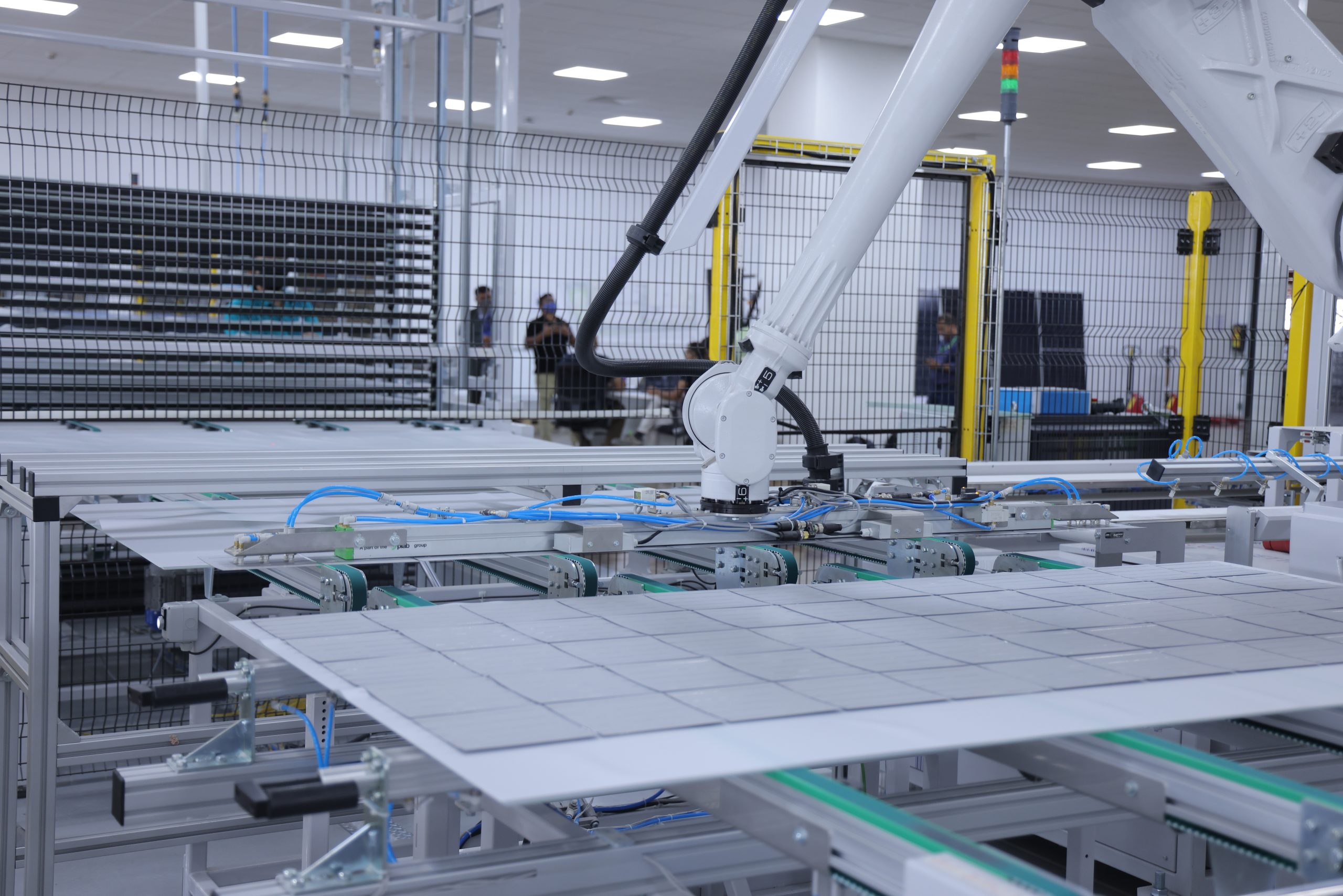Infra-development, expansion of green bonds creates a robust financial ecosystem for the RE sector
By EPR Magazine Editorial March 25, 2025 5:52 pm IST
By EPR Magazine Editorial March 25, 2025 5:52 pm IST

Strengthening domestic manufacturing, particularly in high-efficiency solar PV modules and energy storage, is crucial in ensuring energy security and reducing dependence on imports.
India’s rapid renewable energy growth showcases its commitment to a cleaner future. Juhi Marwadi shares her views on the rapidly evolving renewable energy sector in talks with EPR.
How can India sustain and accelerate its renewable energy growth to achieve its 2030 targets?
India’s impressive annual growth in renewable energy is a testament to its commitment to a cleaner future. However, sustaining and accelerating this momentum to meet the 2030 clean energy targets will require a holistic approach integrating technological advancements, policy support, and financial innovation. Strengthening domestic manufacturing, particularly in high-efficiency solar PV modules and energy storage, is crucial in ensuring energy security and reducing dependence on imports.
Additionally, streamlining regulatory frameworks, expanding transmission infrastructure and incentivising corporate and residential solar adoption through innovative financing models drive wider participation in the clean energy movement.
At PIXON, we believe that India can not only meet but exceed its renewable energy ambitions by fostering innovation, collaboration, and sustainable investment.
How do industry collaboration and public-private partnerships benefit the RE sector?
In India, the investment shortfall in the renewable energy sector is being addressed through a multifaceted approach that combines policy support, financial innovation, and industry collaboration. To bridge this gap, the government is incentivising domestic manufacturing, promoting green hydrogen, and implementing schemes like PM-KUSUM and the National Green Hydrogen Mission to encourage large-scale clean energy adoption.
Additionally, infrastructure development, the expansion of green bonds, and renewable energy-focused infrastructure investment trusts (InvITs) are creating a more robust financial ecosystem. Favourable policy reforms, viability gap funding, and tax benefits for investors further strengthen confidence in the sector. Public-private partnerships and initiatives like open-access solar policies drive industrial and commercial investments.
At PIXON, we are committed to supporting this transition by delivering high-quality solar solutions that enhance investor confidence and accelerate the country’s journey toward a sustainable energy future.How is India addressing infrastructure challenges to accelerate renewable energy projects?
India is proactively tackling the challenges of land acquisition and infrastructure development to accelerate renewable energy projects through a combination of policy reforms, strategic planning and technological advancements. The government has introduced solar and wind energy parks with pre-approved land and infrastructure to streamline project execution. Initiatives like the Green Energy Corridor are strengthening grid connectivity and ensuring efficient power evacuation from renewable hubs to demand centres.
Additionally, digitisation of land records, single-window clearance systems and state-level policy interventions reduce bureaucratic delays and expedite land acquisition processes. India ensures that clean energy projects scale efficiently without compromising land-use priorities by fostering public-private partnerships, encouraging agri voltaics under schemes like PM-KUSUM, and integrating decentralised renewable solutions.
How is the country addressing the skill gap in the renewable energy sector?
The country prioritises skill development in the renewable energy sector through government initiatives, industry collaborations and academic partnerships. Programmes like the Suryamitra Skill Development Scheme and the National Institute of Solar Energy (NISE) training programmes equip professionals with expertise. Additionally, the government is fostering public-private partnerships to bridge the skill gap, encouraging companies to invest in workforce training.
At PIXON, we believe in empowering the workforce with cutting-edge knowledge and practical training, ensuring India’s renewable energy sector remains globally competitive and future-ready.
For more information : https://www.pixonenergy.com/products / https://www.pixonenergy.com/
We use cookies to personalize your experience. By continuing to visit this website you agree to our Terms & Conditions, Privacy Policy and Cookie Policy.